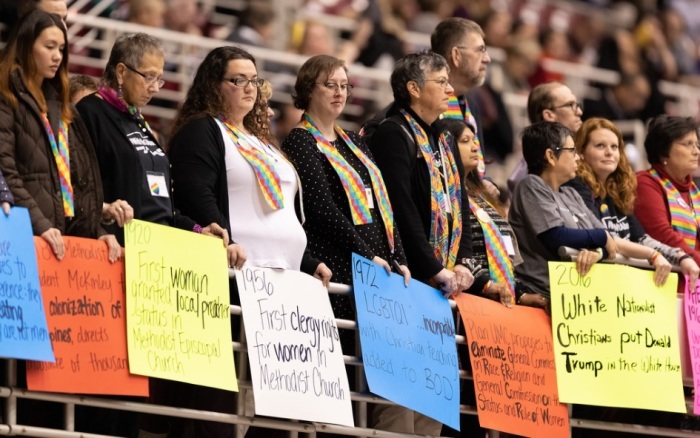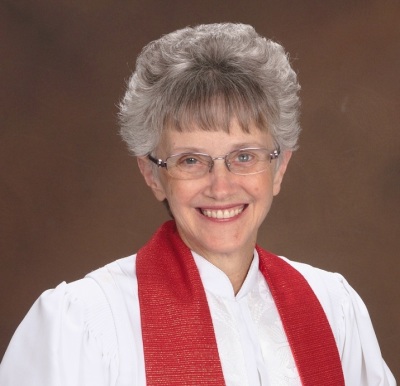UMC on ‘wait and see’ mindset after church court upheld Traditional Plan on homosexuality: bishop

Left-leaning congregations and LGBT activists within the United Methodist Church are looking to next year’s General Conference in the hopes they can change the denomination’s stance on homosexuality.
Despite failing to change the denomination’s official position against homosexuality and same-sex marriage at a special session of General Conference in February or through its highest court last month, there appears to be little movement away from the UMC by progressive congregations and activists.
Bishop Peggy A. Johnson, head of the Eastern Pennsylvania and Peninsula-Delaware Conferences, told The Christian Post that many remain in a “wait and see” mode.
“I have not received any such notifications from any congregations wishing to disaffiliate. Some have asked me to come to their churches and answer questions about the process and this I have done,” said Bishop Johnson.

“The UM Church is holding another General Conference in 2020 and many feel that the results of that conference (only a year away) will produce new legislation that could change the shape of things or not.”
Bridget Cabrera, executive director of the LGBT group Methodist Federation for Social Action, told CP that she was unaware of any “individual LGBTQIA+ affirming churches that are taking steps to leave the denomination.”
“We are continuing to resist and show our dissent from the General Conference ruling,” said Cabrera. “There is continued organizing around building communities and systems of protection for LGBTQIA+ persons and clergy allies that seek to speak out against these policies and live into the Gospel of God's inclusive love.”
The Rev. James Harnish, spokesperson for Uniting Methodists, a group that opposed the Traditional Plan, told CP that he felt it was still too soon to determine the full ramifications of the plan.
“Most churches and leaders are processing the implications of the actions in February and the recent rulings of the Judicial Council. None of the new provisions, including a process for congregations to initiate proposals to leave the denomination, will be in effect until January 2020,” explained Harnish.
“Meanwhile, there are many efforts underway across the UMC to evaluate the new legislation and Judicial Council rulings and propose ways for congregations and annual conferences to respond.”
In late February, the UMC held a special session of General Conference in which a majority of delegates approved a plan that would not only maintain the denomination’s stance on LGBT issues, but more strictly enforce their rules.
In late April, the United Methodist Judicial Council, which is the denomination’s highest court, largely upheld the Traditional Plan approved at the special session.
While declaring some of the petitions within the Traditional Plan to be unconstitutional, Judicial Council Decision 1378 nevertheless upheld most of the petitions, including a few that mandated stricter enforcement of the UMC’s prohibitions on gay ordination and same-sex marriage ceremonies.
“These petitions are not so closely related that a change in one affects the others. The petitions held unconstitutional have no effect on the petitions declared constitutional,” read the decision.
“The constitutional petitions are not dependent on the unconstitutional petitions and can survive without the unconstitutional petitions.”
In another ruling, Decision 1379, the Judicial Council upheld a petition that allowed for a “gracious exit” for congregations that could not in good conscience adhere to the UMC’s stance on LGBT issues.




























